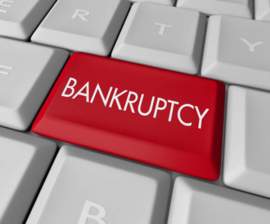
Advice You Must Read On Bankruptcy

Must Read
Bankruptcy Explained
1. Before filing for bankruptcy, you must understand what the program offers.
2. Bankruptcy is a Federally-driven program that enables an individual or business entity that is unable to meet their various debt obligations to restructure their payment plans through liquidation or the development of an alternative payment resolution.
3. Bankruptcy claims enable debtors to seek relief through an alternative payment plan or the assets obtained from liquidation. Both of these options will effectively strip away the debts incurred and, in essence, offer a fresh start to those in debt.
4. The various scopes of laws and regulations which govern bankruptcy claims are distributed and heard at the Federal level. In other words, individuals or business entities may not file for bankruptcy at the local level. That being said, an individual filing for bankruptcy will initiate their claim at the local court system which handles bankruptcy cases.
5. Those who file for bankruptcy do so to free themselves from the constraints of creditors. Creditors are those entities who are owed money or assets because of the underlying debtor’s inability to repay their loans. The involvement of the Government, through the filing of a bankruptcy plan, will enable debtors to reorganize their debt structure by supplying incremental payments to their creditors.
6. There are many different forms of bankruptcy filings, the most common being Chapter 7 filings, Chapter 11 filings, and Chapter 13 filings.
7. Each form of bankruptcy claim aims to offer relief to the debtor filing. That being said, each form of bankruptcy accomplishes this goal through different mechanisms.
8. A Chapter 7 filing will immediately resolve debts through liquidation—the individual or entity’s assets are sold and the proceeds from the liquidation are used to pay off the debts owed.
9. A Chapter 11 filing is typically initiated by a business entity that is struggling with sales or earning a profit. A Chapter 11 filing enables the business to maintain its operation (through the appointment of a trustee), while developing repayment plans that are aligned with the company’s expected profits.
10. In contrast, a Chapter 13 Bankruptcy claim enables an individual or business entity to restructure their payment plan through the delivery of incremental pay periods. The incremental schedule is developed based on the debtor’s income, living expenses and the various amounts owed to the underlying creditors.
Bankruptcy Advice
1. Before filing for bankruptcy you must review all available avenues to alleviate your debt. You must contact your creditors to see if repayment plans can be achieved without filing for bankruptcy.
2. Bankruptcy is a last resort maneuver. Filing for bankruptcy can negatively affect your credit rating for a decade and disable you from obtaining financing.
3. If bankruptcy is your desired course of action, you must thoroughly review your financial situation and choose which option best fits your circumstances. Following this evaluation process, you must contact a bankruptcy lawyer to help initiate your claim. Bankruptcy procedures are complex and the services of a bankruptcy attorney is essential.
4. Bankruptcy legal professionals or attorneys will offer pertinent bankruptcy advice in regards to the development of a re-structured payment plan or steps needed to initiate the liquidation process.
5. A bankruptcy attorney will also lend bankruptcy advice in regards to your relationships with creditors and aid in facilitating the tangible claim with your local bankruptcy court.
NEXT: Involuntary Bankruptcy




















